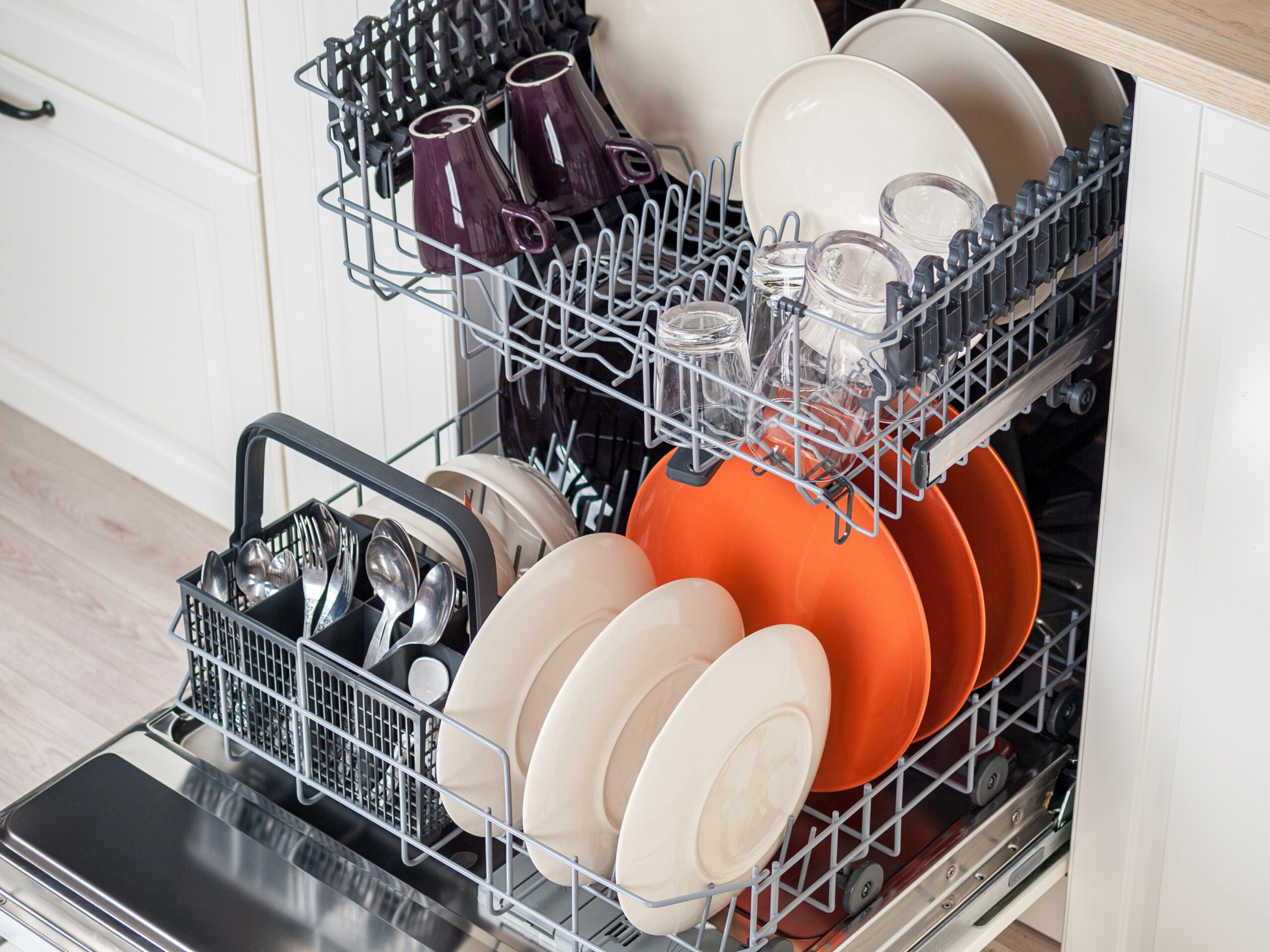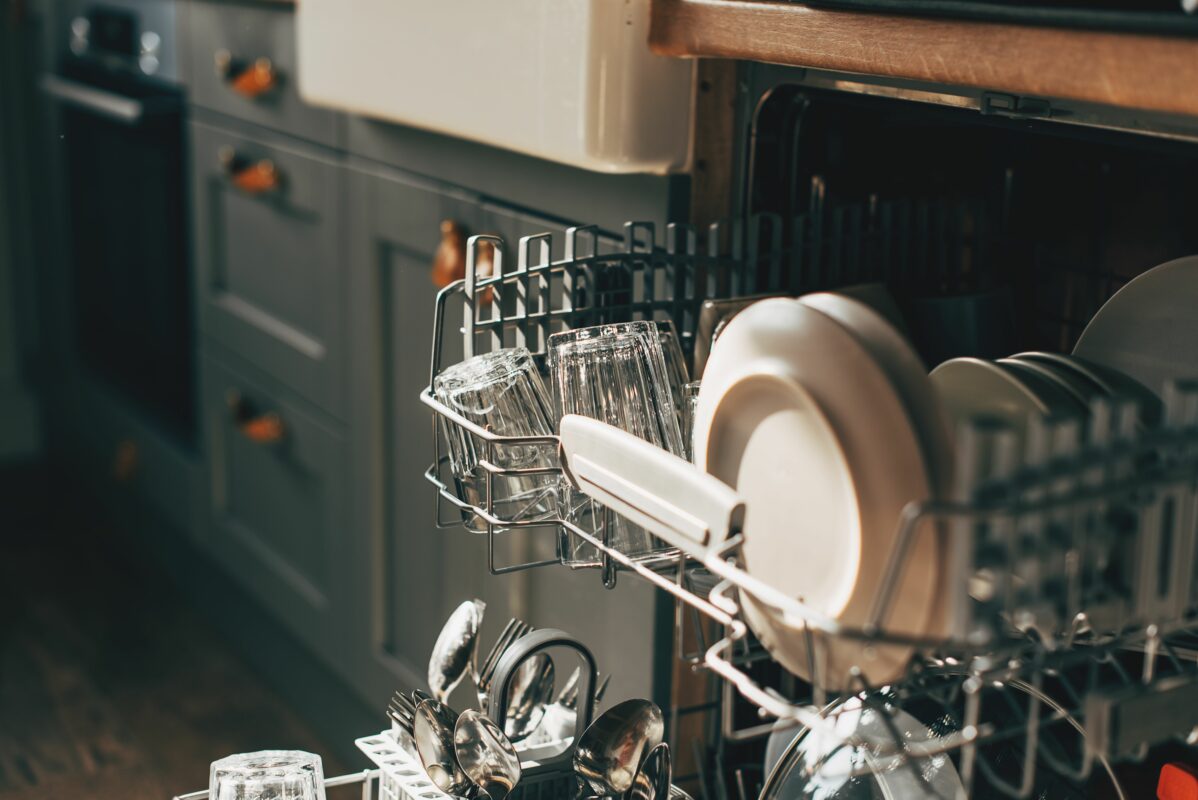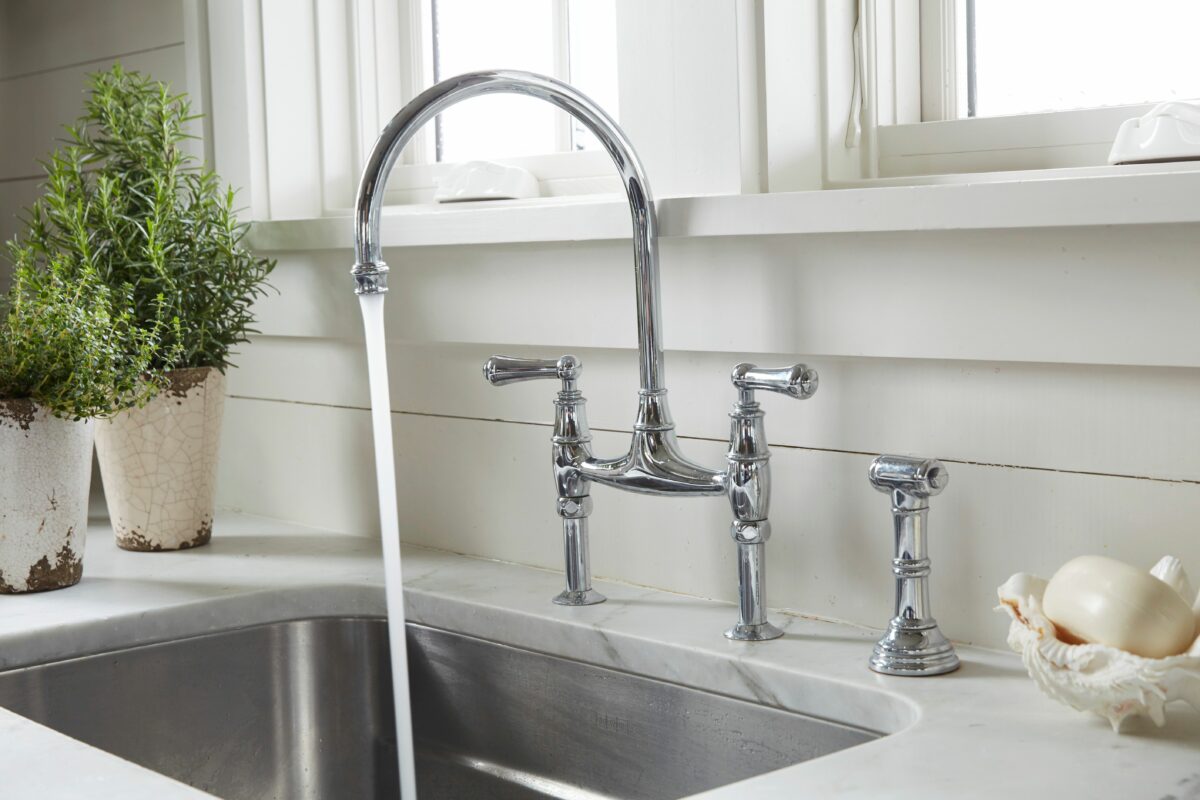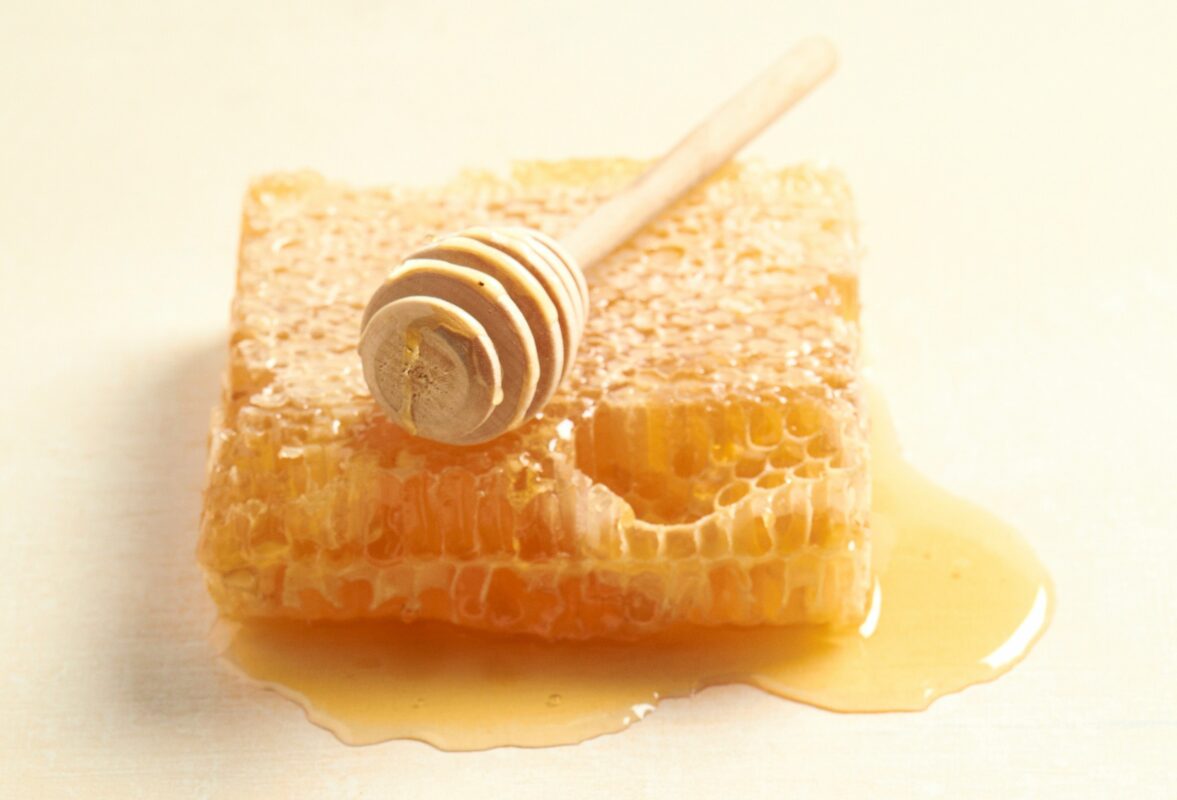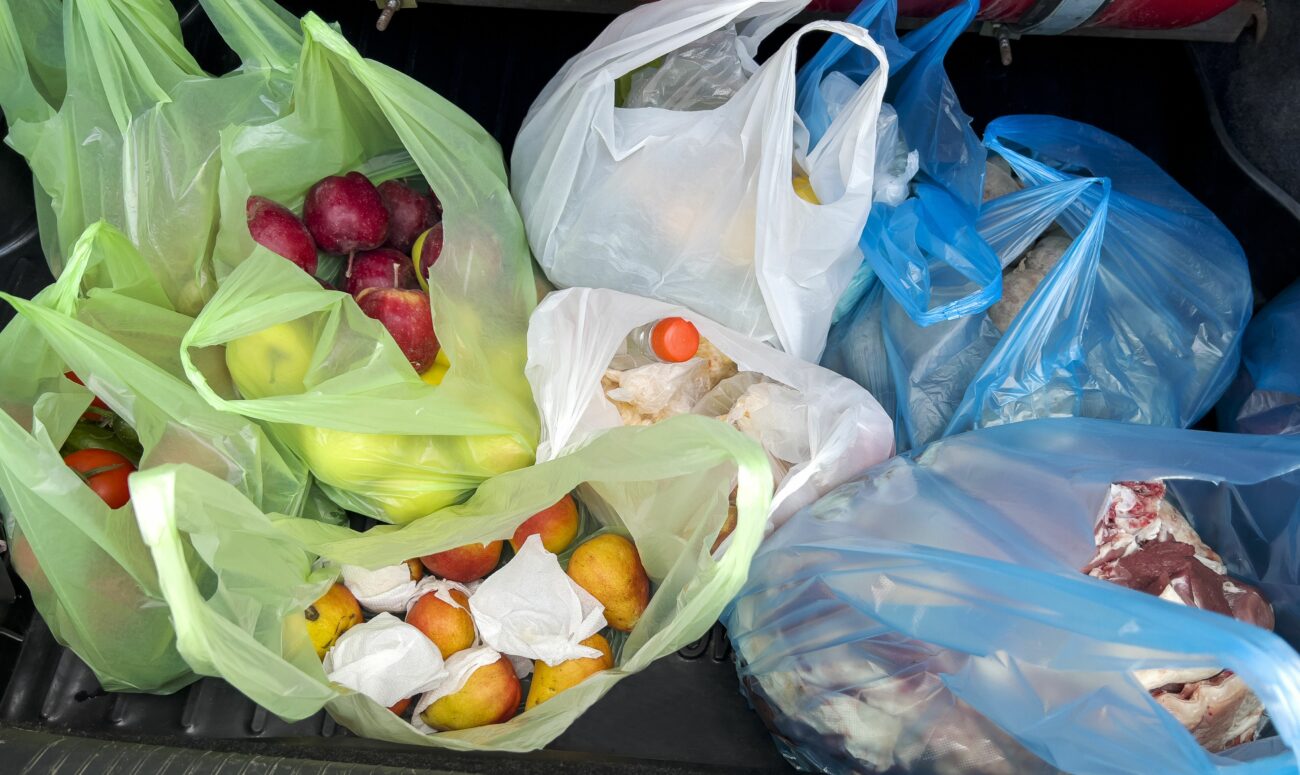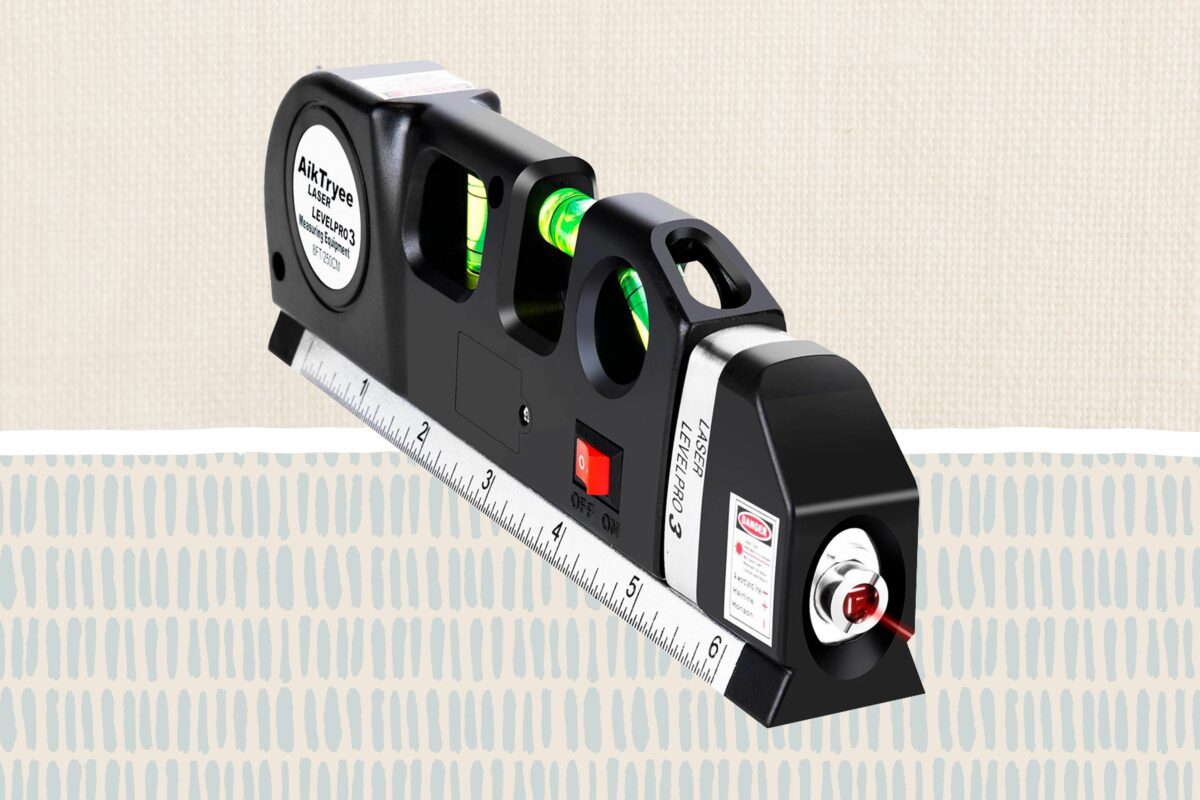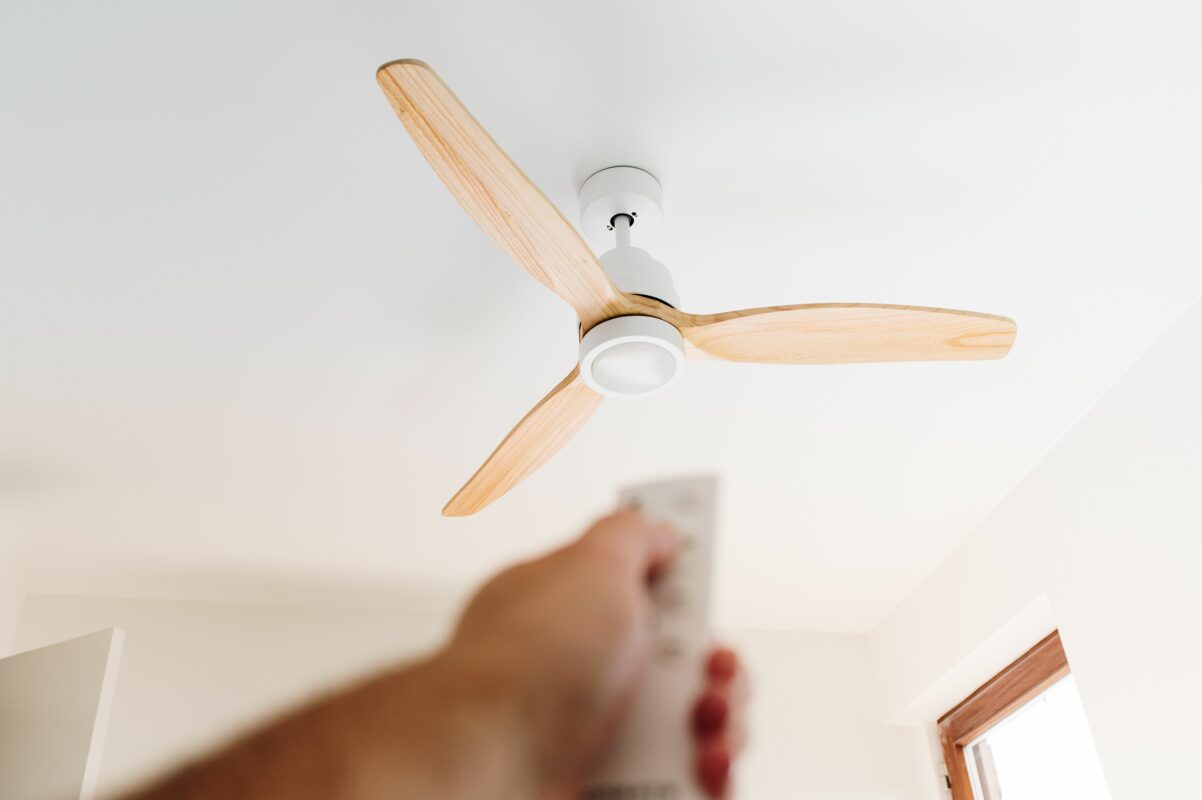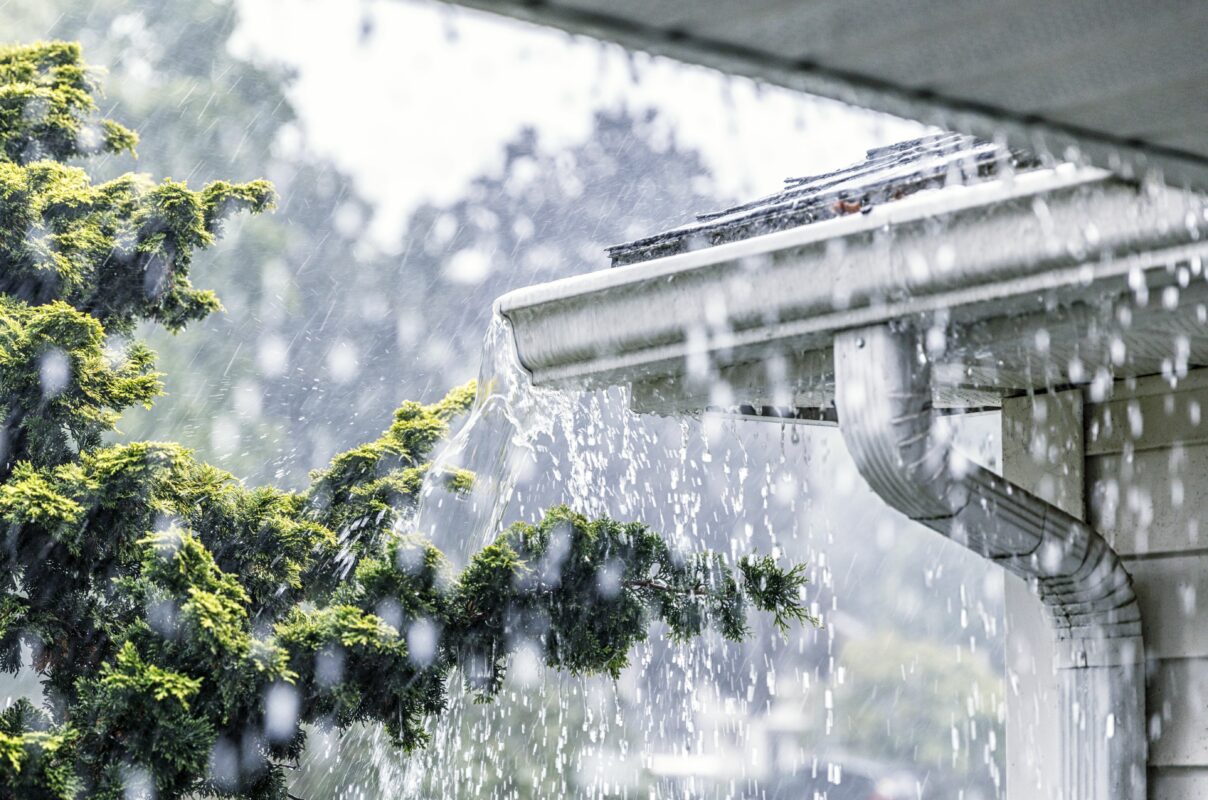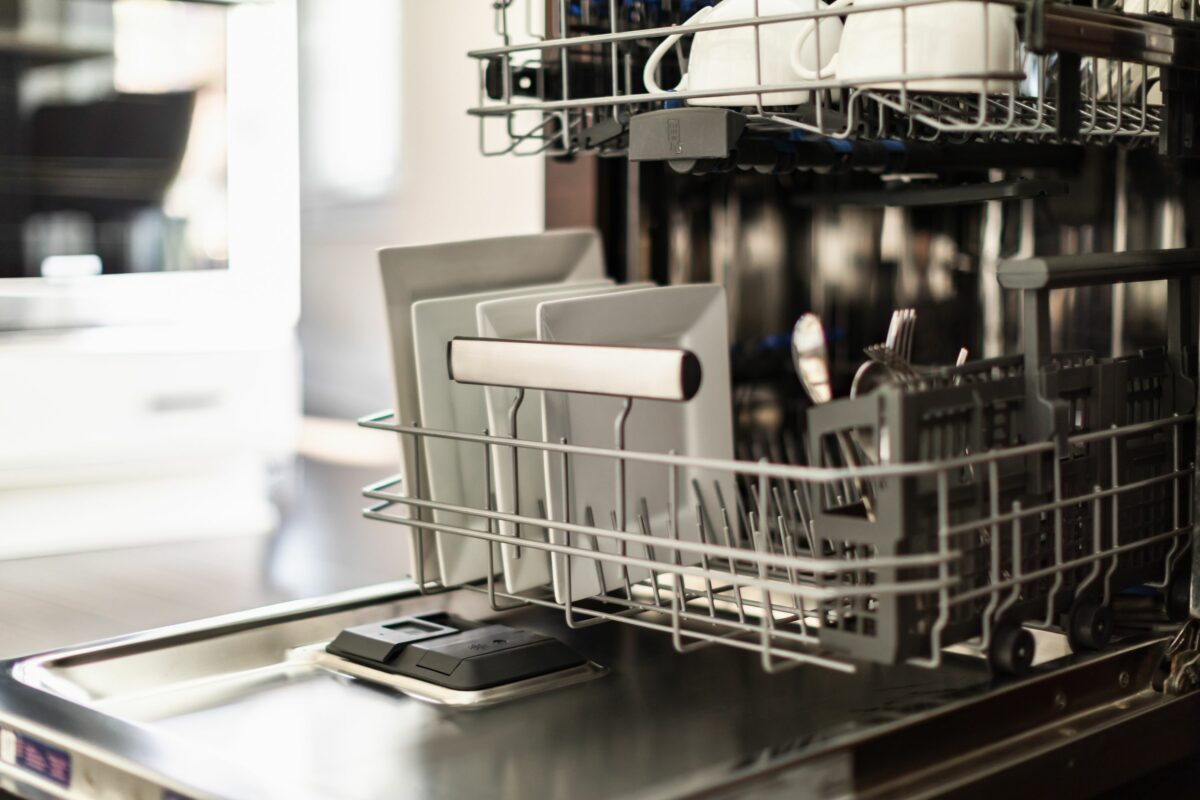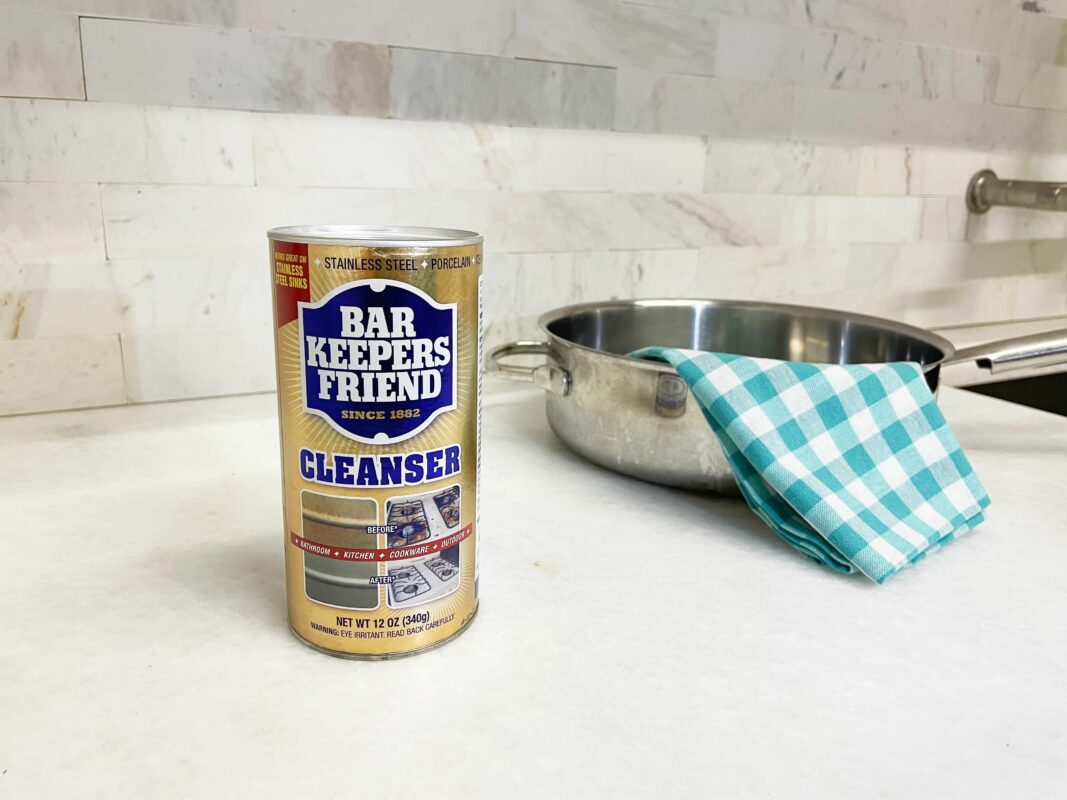Today’s dishwashers might seem to only last a few years, but it could be less about the quality of the appliance and more about how you’re using it. There are several habits that could be shortening the life of your dishwasher. Changing how you use the appliance can drastically improve its lifespan and even help it clean your dishes better. Below, we’ve listed the most common ways you could be shortening the life of your dishwasher and tips for extending your dishwasher’s life.
1. You’re Not Scraping Food Off of Dishes
While pre-rinsing dishes is unnecessary for a modern dishwasher, you should still scrape off hard or bulky items before loading dishes in the dishwasher. Failing to remove large food residue, toothpicks, napkins, and more will quickly clog your dishwasher’s filter and likely damage it even further.
2. You’re Using Too Much Detergent
If you’ve ever waltzed into the kitchen only to be shocked by soap suds leaking from your dishwasher, there’s a simple explanation. And no, it’s probably not the dishwasher’s fault. You’ve simply added too much dish detergent or the wrong type of soap to your dishwasher.
In some respect, a dishwasher is a precision appliance that counts on a specific amount of soap and type of soap to run a wash cycle. Choosing the wrong type of detergent or putting too much soap into the dishwasher disrupts the cleaning cycle and over-suds the appliance. At best, you’ll end up with spots all over your dishes. At worst, you’ll end up with soap all over your kitchen.
3. You’re Not Clearing the Drain Filter
Wait—there’s a filter on a dishwasher? If you’re just now discovering this, you may be in for a deep cleaning. Dishwashers feature a drain filter, usually comprised of two separate screens, which prevents any large particulate or debris from entering the drain.
Failing to regularly remove and clean these screens will lead to smells and poorly cleaned dishes. It could even damage your dishwasher if neglected long enough.
4. You’re Not Cleaning It
Your dishwasher is supposed to do the cleaning, right? Sort of. Your dishwasher can only get dishes as clean as it is, and if the interior of the dishwasher is full of mold, mildew, and other mystery grime, you need to remove it before spreading it across your dishes.
Open the appliance, remove the racks, and scrub the mold and mildew away with a damp cloth. For stubborn grime, you may need a cleaning agent such as bleach.
Never use bleach to clean stainless steel, as it can damage the surface. When in doubt, check your manufacturer’s recommendations for cleaning your specific dishwasher model.
5. You’re Not Leaving It Open
No, we’re not saying you should leave the dishwasher open all the time. What we are suggesting is that you leave the dishwasher open after running a cycle to let it vent the heat and moisture. This can prevent mold and mildew growth, which can lead to strange smells and dishwasher damage.
Even letting your dishwasher dry after a cycle isn’t enough to stop rust on damaged dishwasher racks. To fix this, you must remove as much rust as possible, then coat the rack with a dishwasher rack repair coating or a silicone sleeve, both available at many hardware stores and online retailers.
6. You’re Not Using It Enough
Giving your dishwasher a break and hand washing the sink full of dishes may have the opposite effect that you think. Not running your dishwasher with hot water regularly can lead to damage resulting from excess buildup and debris settling at the bottom of the dishwasher.
7. You’re Not Removing Buildup
When buildup does occur, you need to remove it. The best way to remove buildup from a dishwasher is to run a cycle with an acid such as white vinegar or lemon juice. It’s as simple as placing a bowl full of the acid on the top rack and running a cycle.
Tips for Extending the Life of Your Dishwasher
- Run it often. A dishwasher used frequently will likely last longer than one run only occasionally, as it helps prevent buildup from occurring.
- Clean it regularly. Your dishes are only as clean as the inside of your dishwasher. Take time to clean the interior of your dishwasher to help it work better and last longer.
- Let it air out. After a hot, steamy wash cycle, the worst thing you can do is close the dishwasher. Open it up to air out and dry it before you close it.
- Remove buildup as needed. Buildup in a dishwasher is expected and natural, but you should take time to remove it as necessary. To do so, an acid like white vinegar or lemon juice is usually all it takes.
- Use the right detergent. Don’t fill your dishwasher with just any soap. Use the right dish detergent and the right amount of detergent for the best results.
- Watch what you put in your dishwasher. While today’s dishwashers and detergents can clean even the dirtiest dishes, it’s not wise to load a dishwasher with dishes covered in food and other debris.
- Clean your filter screens. Failing to clean your drain filter screens will lead to poor drainage and circulation of old food residue during each cycle.


